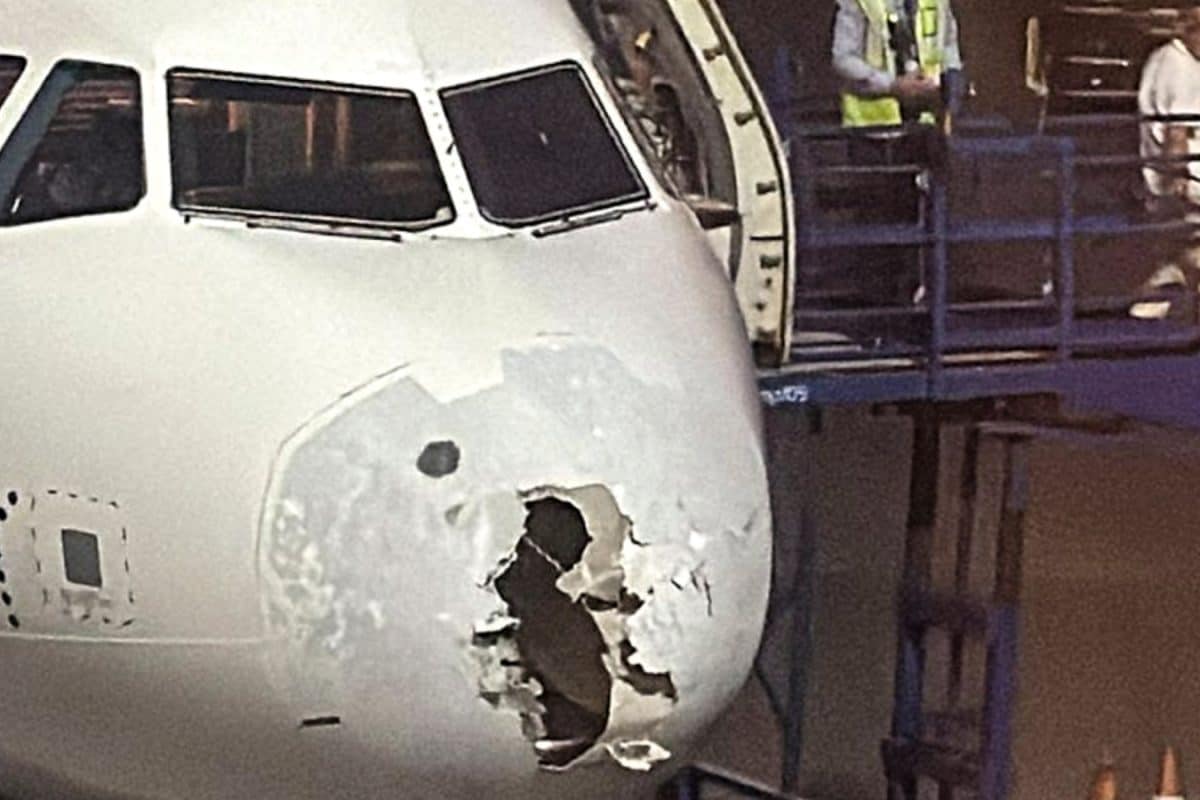

On Wednesday, May 21, 2025, an IndiGo flight 6E 2142 from Delhi to Srinagar carrying over 220 passengers, encountered a harrowing mid-air incident involving a severe hailstorm and turbulence. The flight crew's request to deviate into Pakistani airspace to avoid the storm was denied by both the Indian Air Force (IAF) and the Lahore Air Traffic Control (ATC). Despite the challenges, the pilots managed to land the aircraft safely in Srinagar, with assistance from the Srinagar ATC, though the aircraft sustained damage.
According to the Directorate General of Civil Aviation (DGCA), the IndiGo flight encountered the severe weather near Pathankot while cruising at 36,000 feet. The crew, in their post-flight statement, indicated that they had requested the IAF's Northern Control for a deviation towards the left, which would have briefly taken them into Pakistani airspace, but this request was denied. Subsequently, they contacted Lahore ATC directly, seeking permission to enter Pakistani airspace to avoid the storm, but this request was also turned down.
Defense sources, however, refuted the DGCA's claim that the IAF-controlled Northern Area Control Centre (NACC) is authorized to grant permission to enter international airspace, clarifying that this authority rests with Delhi Air Traffic Control. Despite the denial, the NACC assisted the flight by providing ground speed information from radar, as the aircraft's instruments were malfunctioning due to the storm.
Faced with no option to divert, the pilots decided to continue through the weather system. Inside the storm, the aircraft experienced severe hail impact and violent turbulence, leading to multiple system malfunctions. Unreliable airspeed readings, likely due to blocked pitot tubes, triggered repeated stall and maximum speed warnings. The autopilot system tripped, forcing the pilots to manually fly the jetliner. At one stage, the aircraft descended rapidly at 8,500 feet per minute, far exceeding the normal descent rate of 1,500 to 3,000 feet per minute.
Despite the chaos, the pilots maintained control and followed all Electronic Centralized Aircraft Monitoring (ECAM) checklist actions. They declared a "PAN PAN," the international standard urgency signal, to Srinagar ATC, which guided the flight through its final descent. The aircraft landed safely in Srinagar without further incident.
A post-flight inspection revealed significant damage to the aircraft's nose cone, specifically the radome, which houses the weather radar. There were no reported injuries to passengers or crew. The DGCA has initiated a formal investigation into the incident, with technical teams from IndiGo and the regulator assessing flight data and cockpit voice recordings.
IndiGo issued a statement confirming that all customers were attended to upon landing and that the aircraft is undergoing necessary inspection and maintenance in Srinagar. They expressed gratitude to their customers for their cooperation and reiterated that the safety of customers and crew remains their highest priority.
The incident highlights the challenges faced by commercial airlines operating in regions with geopolitical tensions and airspace restrictions. Pakistan has closed its airspace to Indian carriers since April 24, 2025, following the Pahalgam terror attack, which has strained diplomatic relations between the two countries. Aviation experts suggest that emergency requests should be considered regardless of airspace closures in the interest of passenger safety.